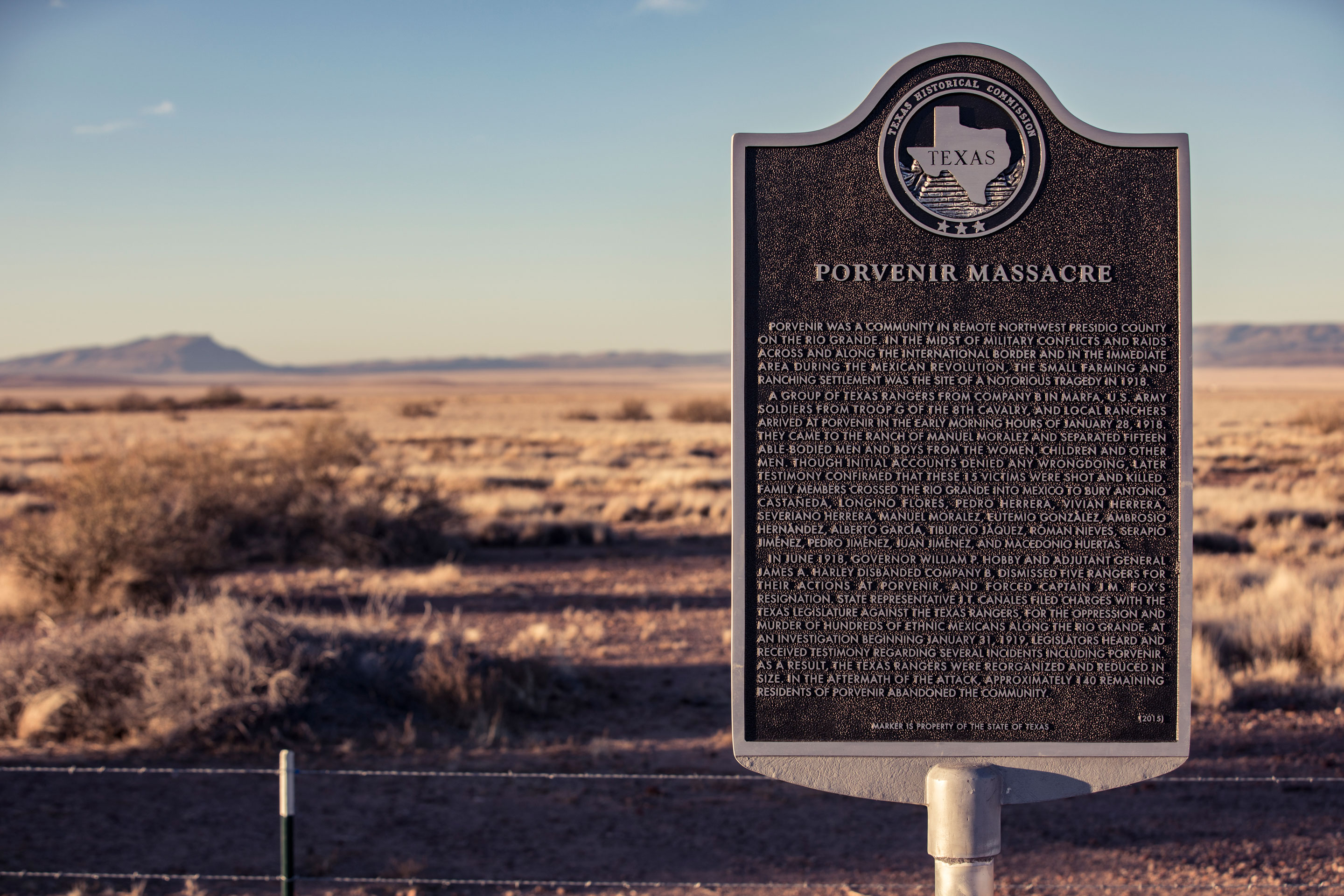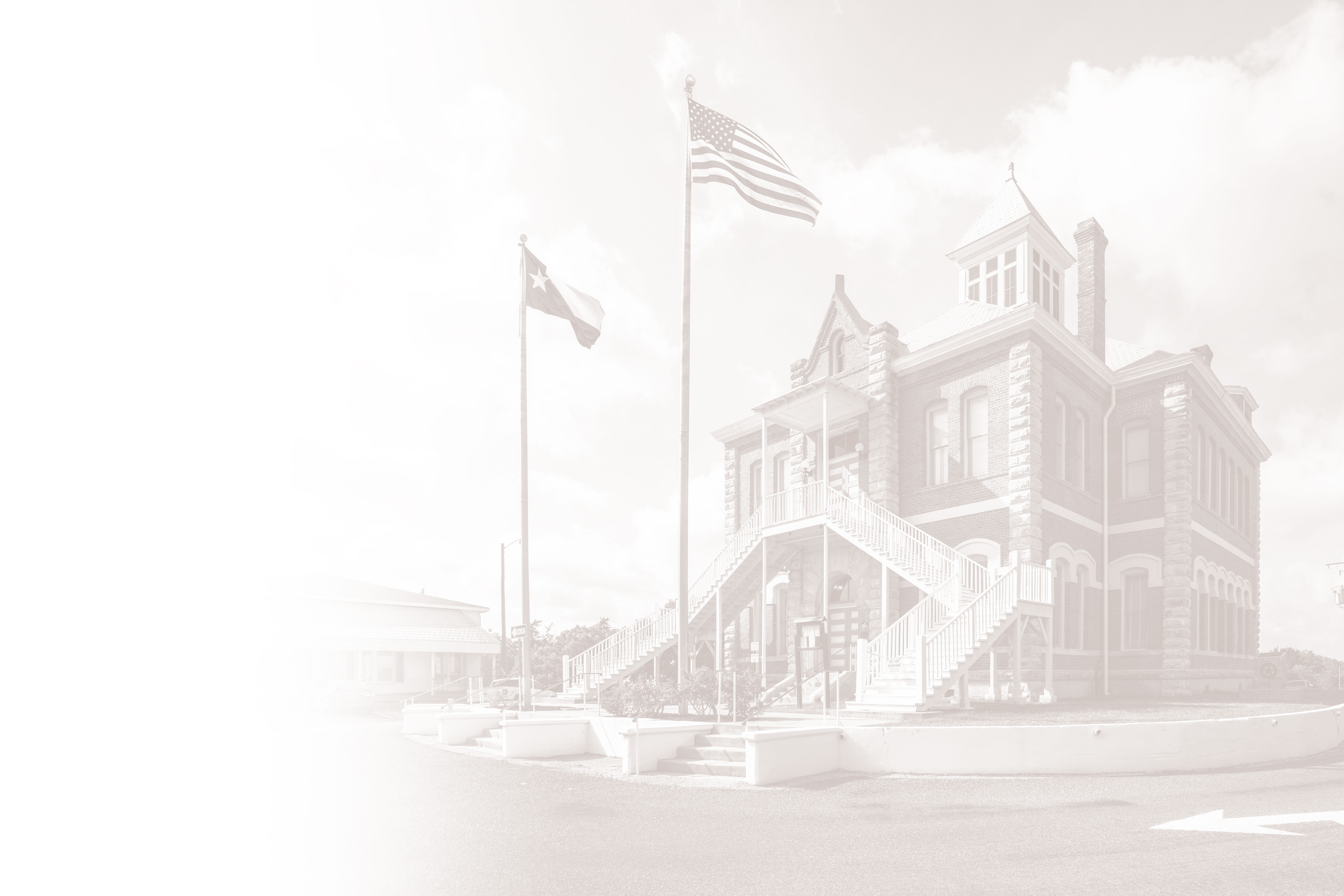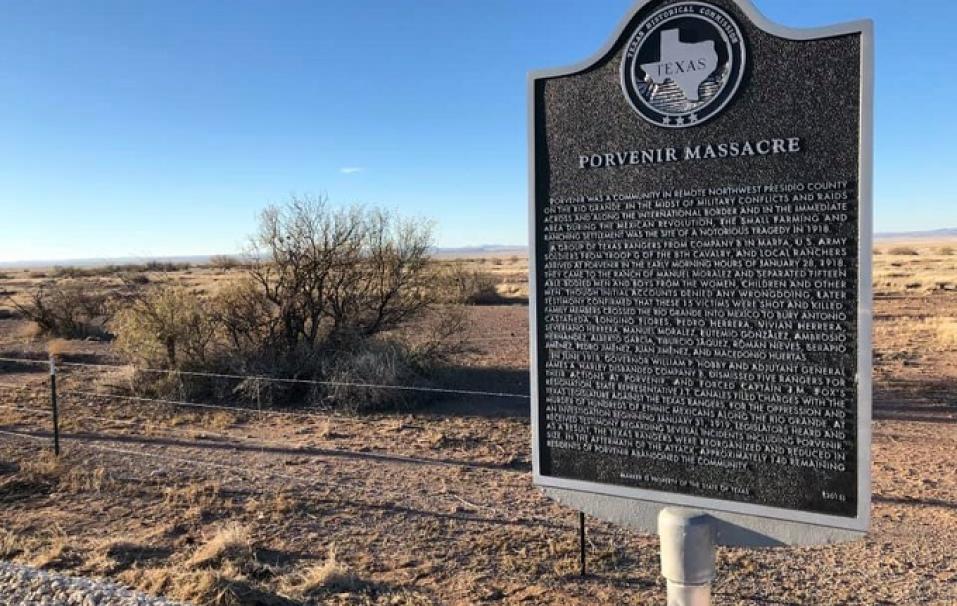On Friday, November 30, 2018, the THC held a dedication ceremony for the Porvenir Massacre Undertold Marker in Marfa, Texas.
With Texas’ proximity to the Mexican Revolution and U.S. involvement in World War I, the nation confronted racial and social instability that fed, and fed on, the bloody conflicts.
Schemes to claim tracts of the U.S. for Mexico were publicized—some might say propagandized—building on the paranoia already prevalent in that area. Stories of bloodshed created a state of dread among residents on both sides of the border.
Ultimately, U.S. troops were dispatched to the border—more than 100,000 from California to Texas. These troops, along with Texas Rangers and other state officials, were tasked with policing the border. With the manpower pouring over the border, the presence of these troops dramatically heightened tensions—escalating an already volatile situation.
Only a month before the Porvenir Massacre in 1918, several Texans—mostly Mexican American citizens—were killed at Brite Ranch on Christmas Day 1917, allegedly by revolutionaries from Mexico.
Porvenir was a remote community in northwest Presidio County on the Rio Grande. The small farming and ranching settlement was the site of a notorious tragedy that took place in the midst of military conflicts, raids across and along the international border, and in the immediate area during the Mexican Revolution.
A group of Texas Rangers from Company B in Marfa, U.S. Army soldiers from Troop G of the 8th Cavalry, and local ranchers arrived at Porvenir in the early morning hours of January 28, 1918. They came to the ranch of Manuel Moralez and separated 15 able-bodied men and boys from the women, children, and other men.
Though initial accounts denied any wrongdoing, later testimony confirmed that these 15 victims were shot and killed.
Family members crossed the Rio Grande into Mexico to bury Antonio Castañeda, Longino Flores, Pedro Herrera, Vivian Herrera, Severiano Herrera, Manuel Moralez, Eutemio González, Ambrosio Hernández, Alberto García, Tiburcio Jáquez, Róman Nieves, Serapio Jiménez, Pedro Jiménez, Juan Jiménez, and Macedonio Huertas.
In June 1918, Gov. William P. Hobby and Adjutant Gen. James A. Harley disbanded Company B, dismissed five Rangers for their actions at Porvenir, and forced Capt. J.M. Fox’s resignation.
State Rep. J.T. Canales filed charges with the Legislature against the Texas Rangers for the oppression and murder of hundreds of ethnic Mexicans along the Rio Grande.
At an investigation beginning January 31, 1919, legislators heard and received testimony regarding several incidents, including Porvenir. As a result, the Texas Rangers were reorganized and reduced in size. In the aftermath of the attack, approximately 140 remaining residents of Porvenir abandoned the community.
In recognition of the vital need to tell the complete story of Texas, the THC implemented the Undertold Stories Marker Program to help fill historical gaps in the Lone Star State’s history.
The Undertold Story Markers, now numbering more than 170, join almost 17,000 historical markers across all 254 Texas counties, promoting stories that focus on diverse or underrepresented topics.
Unlike regular subject markers, these stories, in many cases, come directly from members of the public. This application was submitted by Dr. Monica Muñoz Martinez, a Postdoctoral Fellow at the University of Texas at Austin and an assistant professor of American Studies at Brown University.


